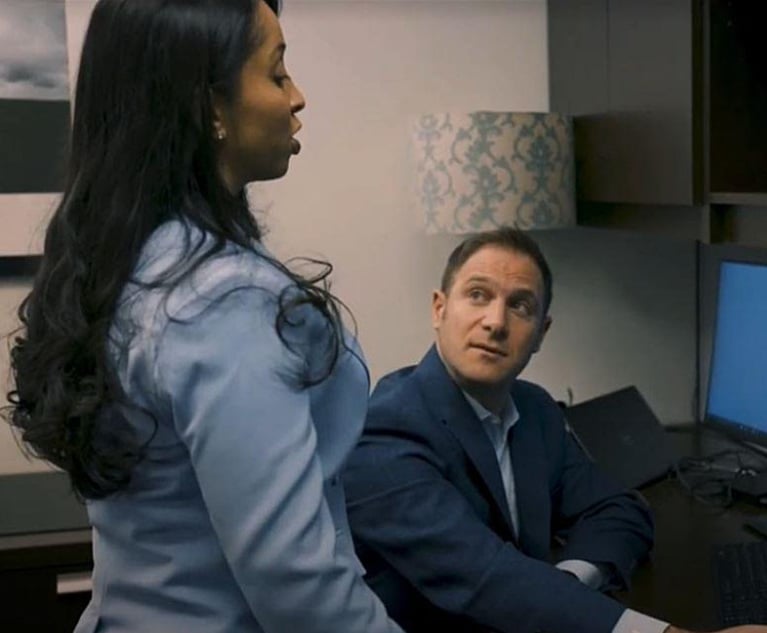'You Have to Eat': How Working During Law School Hurts Bar Exam Performance
"Preparing for the bar exam needs to be a full-time job," said Justin Dion, director of the Bar Success Program at Western New England University School of Law.
May 23, 2018 at 07:31 PM
4 minute read
 Western New England University in Springfield, Massachusetts. (Photo: Paul Schnaittacher/Wikimedia)
Western New England University in Springfield, Massachusetts. (Photo: Paul Schnaittacher/Wikimedia) There's a catch-22 that might explain falling bar exam passage rates across the country: Many law students now need to work to cover tuition, but their full-time jobs mean they spend too little time preparing for the big test.
Only 38 percent of candidates passed the last Connecticut bar exam in February—an 18-year low for the state.
Just three years earlier, 68 percent passed the February exam. But that number has plummeted with each subsequent sitting. In 2016, it fell to 63 percent. The following year, another dip, this time to 50 percent. Most recently, only 74 of 195 students passed the February exam.
But that dwindling success rate might point to students' work ethic—not their lack of it, experts said.
“Preparing for the bar exam needs to be a full-time job,” said Western New England University School of Law's Justin Dion. “You need to be spending eight hours a day on it preparing and studying.”
But that's the problem: Most candidates can't afford that luxury.
“You do have to eat,” said Joseph Olivenbaum, director of academic support programs at Quinnipiac University in Hamden. But “a student who is in a position where they have to work is [at] a disadvantage.”
With many February candidates at least in their mid-20s and not independently wealthy, they undertake huge debt to pay tuition. At Quinnipiac University School of Law, for instance, pursuing a law degree costs about $48,800. University of Connecticut School of Law's in-state tuition is about $29,400, or about $59,900 for out-of-state students. At Western New England University, the tab runs around $41,000.
“There seems to be a larger cohort of Connecticut students working full-time while attending Western New England,” said Dion, who directs the Bar Success Program at the Springfield, Massachusetts-based university and serves as its professor of legal skills. “That has been the trend in recent years. There are a lot of people in Connecticut who work in insurance and they come to law school in the evening.”
That dynamic—working full-time and attending class after hours—was once the exception, but now it's the rule.
“The financial pressures and obligations of students have increasingly grown over the years, forcing more to divert attention to things other than studying for the bar exam,” Dion said. “Any other job, full- or part-time, makes it exceptionally more difficult to pass, as you are forced to condense a full day's worth of studying into a much smaller time frame.”
Universities are starting to acknowledge the issue and offer support, in addition to bar exam preparation courses that review substantive law and practice questions that test-takers might encounter on the exam.
Meanwhile, the bar exam itself is facing mounting criticism among detractors in Iowa, Wisconsin and other states, who view it as an unreasonable barrier to becoming a lawyer.
But Neal Feigenson, associate dean at Quinnipiac University School of Law, said a screening mechanism is essential.
“People who want to be doctors take tests, and to be in academia you take qualifying exams,” Feigenson said. “Like any test, the bar is not a perfect measurement, but it does screen, and that is its function. It's not a perfect tool, but it does perform a rationale and necessary screening function.”
For candidates, the question now becomes how to pass that screening while working their way through school.
This content has been archived. It is available through our partners, LexisNexis® and Bloomberg Law.
To view this content, please continue to their sites.
Not a Lexis Subscriber?
Subscribe Now
Not a Bloomberg Law Subscriber?
Subscribe Now
NOT FOR REPRINT
© 2025 ALM Global, LLC, All Rights Reserved. Request academic re-use from www.copyright.com. All other uses, submit a request to [email protected]. For more information visit Asset & Logo Licensing.
You Might Like
View All
Connecticut's Wiggin and Dana Absorbs Boca Raton Trusts and Estates Boutique
3 minute read
Law Firm Leaders Say Gen AI Can Level Playing Field Between Large and Smaller Firms
6 minute read
Revenue Up 11.2%, PEP Up 22.1% at Akin, as Aggressive Hiring Pays Off
5 minute read
New England's Hinckley Allen Expands Southward, Opening 7th Office in Fort Lauderdale
2 minute readTrending Stories
- 1'A Death Sentence for TikTok'?: Litigators and Experts Weigh Impact of Potential Ban on Creators and Data Privacy
- 2Bribery Case Against Former Lt. Gov. Brian Benjamin Is Dropped
- 3‘Extremely Disturbing’: AI Firms Face Class Action by ‘Taskers’ Exposed to Traumatic Content
- 4State Appeals Court Revives BraunHagey Lawsuit Alleging $4.2M Unlawful Wire to China
- 5Invoking Trump, AG Bonta Reminds Lawyers of Duties to Noncitizens in Plea Dealing
Who Got The Work
J. Brugh Lower of Gibbons has entered an appearance for industrial equipment supplier Devco Corporation in a pending trademark infringement lawsuit. The suit, accusing the defendant of selling knock-off Graco products, was filed Dec. 18 in New Jersey District Court by Rivkin Radler on behalf of Graco Inc. and Graco Minnesota. The case, assigned to U.S. District Judge Zahid N. Quraishi, is 3:24-cv-11294, Graco Inc. et al v. Devco Corporation.
Who Got The Work
Rebecca Maller-Stein and Kent A. Yalowitz of Arnold & Porter Kaye Scholer have entered their appearances for Hanaco Venture Capital and its executives, Lior Prosor and David Frankel, in a pending securities lawsuit. The action, filed on Dec. 24 in New York Southern District Court by Zell, Aron & Co. on behalf of Goldeneye Advisors, accuses the defendants of negligently and fraudulently managing the plaintiff's $1 million investment. The case, assigned to U.S. District Judge Vernon S. Broderick, is 1:24-cv-09918, Goldeneye Advisors, LLC v. Hanaco Venture Capital, Ltd. et al.
Who Got The Work
Attorneys from A&O Shearman has stepped in as defense counsel for Toronto-Dominion Bank and other defendants in a pending securities class action. The suit, filed Dec. 11 in New York Southern District Court by Bleichmar Fonti & Auld, accuses the defendants of concealing the bank's 'pervasive' deficiencies in regards to its compliance with the Bank Secrecy Act and the quality of its anti-money laundering controls. The case, assigned to U.S. District Judge Arun Subramanian, is 1:24-cv-09445, Gonzalez v. The Toronto-Dominion Bank et al.
Who Got The Work
Crown Castle International, a Pennsylvania company providing shared communications infrastructure, has turned to Luke D. Wolf of Gordon Rees Scully Mansukhani to fend off a pending breach-of-contract lawsuit. The court action, filed Nov. 25 in Michigan Eastern District Court by Hooper Hathaway PC on behalf of The Town Residences LLC, accuses Crown Castle of failing to transfer approximately $30,000 in utility payments from T-Mobile in breach of a roof-top lease and assignment agreement. The case, assigned to U.S. District Judge Susan K. Declercq, is 2:24-cv-13131, The Town Residences LLC v. T-Mobile US, Inc. et al.
Who Got The Work
Wilfred P. Coronato and Daniel M. Schwartz of McCarter & English have stepped in as defense counsel to Electrolux Home Products Inc. in a pending product liability lawsuit. The court action, filed Nov. 26 in New York Eastern District Court by Poulos Lopiccolo PC and Nagel Rice LLP on behalf of David Stern, alleges that the defendant's refrigerators’ drawers and shelving repeatedly break and fall apart within months after purchase. The case, assigned to U.S. District Judge Joan M. Azrack, is 2:24-cv-08204, Stern v. Electrolux Home Products, Inc.
Featured Firms
Law Offices of Gary Martin Hays & Associates, P.C.
(470) 294-1674
Law Offices of Mark E. Salomone
(857) 444-6468
Smith & Hassler
(713) 739-1250










